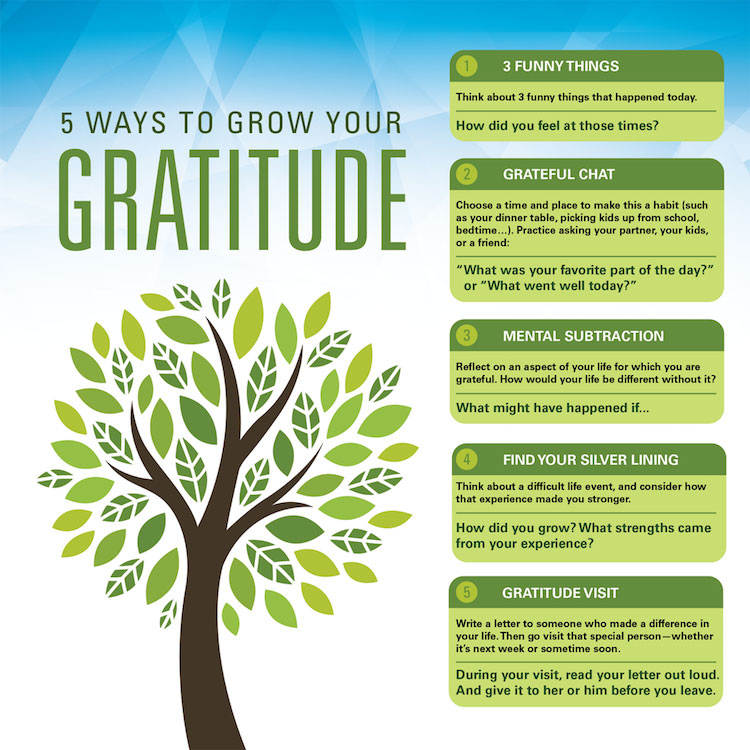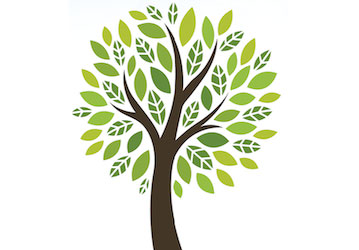Practicing gratitude through thoughts and behaviors can influence your well-being and performance in powerful ways. Gratitude is an emotion that you feel when you’ve received a gift or benefitted from the kindness or thoughtfulness of others. Feeling grateful can boost your well-being, positive emotions, and happiness. When you receive something of value through the good intention of others, you even might feel inspired to pay it forward or reciprocate.
People who practice gratitude also might experience the following benefits:
- Improved sleep. At the end of the day, many people reflect on what went wrong that day or mull over their laundry list of to-dos to tackle tomorrow, which can impair sleep. Grateful people tend to think more positively, for example, about what went well or something they enjoyed, and they report better sleep.
- Enhanced goal attainment. Gratitude practices enable you to highlight wins and repeat strategies that led to success. It also can help you shift focus away from materialistic measures of achievement, such as money or possessions, and toward personal growth and mastery instead.
- A sense of closure with traumatic events. Rewriting your story around difficult experiences you’ve had in your life can help ease emotional processing of those events. Gratitude might change the way you remember those experiences and create a bigger bank of positive memories to draw from in the future. It can improve your overall satisfaction with life by helping to shift your brain’s bias toward the negative too.
- Strengthened relationships. Gratitude fosters social support by “reminding you” and then “binding you” to those who help you get through tough times, which can increase your connectedness to and generosity toward others. Social support is a powerful protective factor against stress and depression.
Some people are more grateful by nature, but everyone can grow their gratitude by practicing how to notice good things that happen to them and expressing appreciation through words and actions. But growing gratitude doesn’t happen by accident: You can start by intentionally seeking out opportunities to grow gratitude for your day-to-day experiences. Whether through personal reflection or conversations with others, find gratitude activities that fit your interests. Doing so can turn a simple gratitude exercise into a permanent habit.
The U.S. Army’s Resilience Directorate (ARD) already reinforces one way to grow gratitude through its “Hunt the Good Stuff” exercise. In this exercise, you learn to look for good things, both big and small, that happen throughout your day, and then take a moment to reflect on what that good stuff means to you.
Bottom line
If you’re looking for new ways to grow your gratitude, try one of the activities in the graphic below. Start with the one that appeals to you the most, but don’t be afraid to step out of your comfort zone. You might find that the exercises become easier as you practice them more intentionally and deliberately over time. During November, HPRC also will share these activities on social media.

